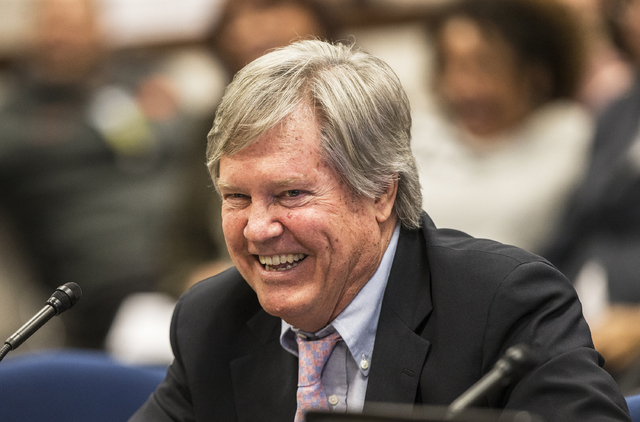Nevada’s transparency law needs teeth
CARSON CITY — Transparency has many supporters in the legislative building, yet few champions. It’s easy to tell voters that you support the public’s right to know. It’s harder to take on local-government lobbyists who will testify in opposition and work behind the scenes to knife your bill to death.
That’s why Sen. Tick Segerblom, D-Las Vegas, deserves praise for working with the ACLU in trying to clarify and update Nevada’s public records law in SB170. It’s especially appropriate that Wednesday’s hearing on SB170 occurred during Sunshine Week, a national week to celebrate open government.
SB170 would clarify deadlines for providing open records and, in an ACLU-proposed amendment, would waive fees for records for some requesters, including news organizations like the Las Vegas Review-Journal. Some government agencies will charge prohibitively high fees when a member of the public requests information they’d rather not make public.
Unsurprisingly, some local governments testified in opposition, with many citing the cost of providing records.
Local governments have a point. Finding and compiling public records does cost money. But letting your boss — the public — know what you’re working on isn’t a low priority that you should get to only when there’s money left over. It’s a top-line priority, much more so than paying hundreds of government employees over $200,000 a year.
Most government agencies in Nevada are great at fulfilling public records requests, but not all. The biggest problem comes when a government agency knows a record is public but decides to stonewall. The only recourse is a lawsuit. Even if the requester wins, the court can only award the requester their attorney fees.
Some agencies, like the Clark County School District and Nevada PERS, in two cases filed by my old employer, the Nevada Policy Research Institute, have decided that preventing transparency is worth the cost. After all, government agencies are risking your money, not their own.
There are ways to change these incentives. NPRI’s Robert Fellner proposed an amendment that would allow a judge to award multiples of attorney fees. Or a court could fine the offending agency $500 a day for every day after the deadline that it chooses not to release the requested records. Washington state allows courts to impose a smaller fine on agencies violating its public records law. Or you could make the decision maker personally liable, perhaps docking 10 percent of their yearly pay or future pension, if the court finds they acted maliciously.
That’s how to give Nevada’s transparency law some much needed teeth.
Victor Joecks’ column appears in the Nevada section each Monday, Wednesday and Friday. Contact him at vjoecks@reviewjournal.com. Follow @victorjoecks on Twitter.























